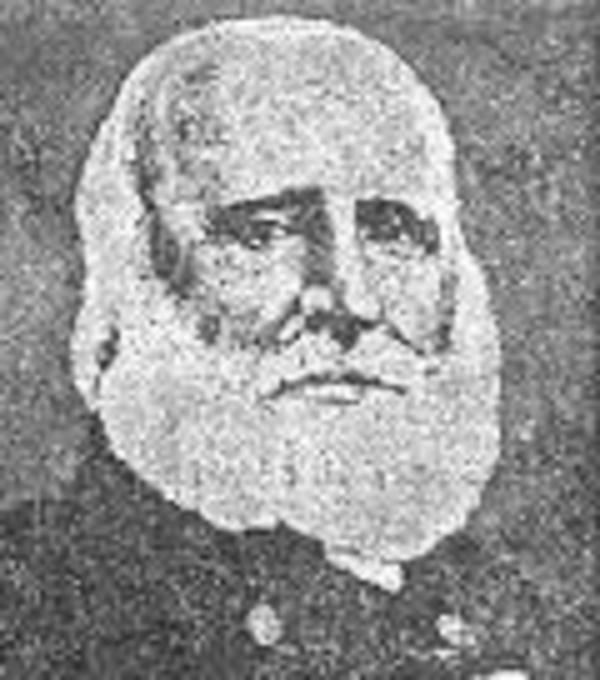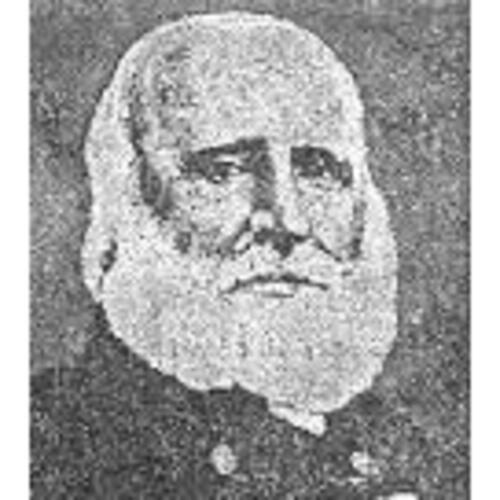
Source: Link
LAROCQUE, FRANÇOIS-ANTOINE (he signed LaRocque), businessman; b. 19 Aug. 1784 at L’Assomption, Que., son of François-Antoine Larocque, first representative for the county of Leinster (L’Assomption), and Angélique Leroux, daughter of Germain Leroux, merchant of L’Assomption; d. 1 May 1869 at Saint-Hyacinthe, Que.
Shortly after his father’s death on 31 Oct. 1792, young Larocque, who had studied at the Collège de Montréal, was sent to the United States to learn English. He was to prefer expressing himself in that language for the rest of his life. In 1801, through his uncle Laurent Leroux*, who had established Fort Resolution (N.W.T.) in 1784, he joined the XY Company as a clerk, working in the region of the Assiniboine River from 1802 to 1804. When this company was absorbed by the North West Company in 1804, he continued to work as a clerk in the Upper Red River department. In the autumn of 1804 he left Fort Assiniboine, with Charles Mackenzie, Jean-Baptiste Lafrance, and four other voyageurs, to go to the Mandan villages on the banks of the Missouri. There, on 25 November, he met the American captains Meriwether Lewis and William Clark, who were under orders to explore the upper Missouri and the northwest as far as the Pacific Ocean. Larocque suggested accompanying them, but when they refused he continued alone on his own expedition. The Journal of Larocque from the Assiniboine to the Yellowstone, 1805 contains the description of the first visit of whites to the country of the Crows since the expedition of Louis-Joseph Gaultier* de La Vérendrye in 1742, and throws a new light on distinctive features of the Mandans and the Minnetarees (Gros-Ventres-Hidatsa).
In 1806 Larocque left the northwest for Montreal, where he founded an unsuccessful business firm. During the War of 1812 he was an ensign in the 3rd militia division of Lower Canada, then a captain in the 5th battalion of Chasseurs Canadiens. He was taken prisoner in October 1813, held at Cincinnati, and set free six months later when prisoners were exchanged. On his return to Montreal after the war, he was decorated with the Châteauguay medal. At Montreal, on 26 Jan. 1818, he married Marie-Catherine-Émilie Cotté, daughter of the merchant Gabriel Cotté*.
In 1819 Larocque was one of the founders of the Bank of Montreal, and remained a member of its board of directors until 1826. When the bank was founded, he was one of the principal French Canadian shareholders, along with his uncle Laurent Leroux and Augustin Cuvillier*. Larocque was also actively engaged in trade. He was a partner of Joseph Masson*, then organized his own business in 1832 under the name of Larocque, Bernard, et Compagnie. During the insurrection of 1837, Larocque was affiliated with the Fils de la Liberté, but did not take up arms. Nevertheless he was imprisoned in Montreal in April 1838 “for having an article on Canada printed and sold at Montreal.”
In September 1841, after the marriage of his only son François-Alfred-Chartier to Amélia Berthelet, daughter of Antoine-Olivier Berthelet*, he retired from business, and led a quiet life until June 1853. At that time he undertook a long trip to the principal cities in the United States, including Cincinnati where he had been a war prisoner. Larocque was by then concerned only with his eternal salvation, and this journey of nearly a year was in effect a long pilgrimage. In 1855 he entered the Hôtel-Dieu of Saint-Hyacinthe run by the Grey Nuns, and here he spent the last years of his life in retreat and study.
Like many of his contemporaries, Larocque had achieved success on the basis of the fur trade. Moreover to him fell “the honour of having opened up the upper Missouri basin to penetration by Canada.” Founding member and one of the rare French Canadians to be a director of the Bank of Montreal, partner in the firm of Masson, Larocque, Strong, and Company, and founder of Larocque, Bernard, et Compagnie, he was a highly respected businessman, in both English and French circles, in the first half of the 19th century.
[F.-A. Larocque], Journal of Larocque from the Assiniboine to the Yellowstone, 1805, ed. L. J. Burpee (Ottawa, 1910); a French edition was published in 1911. PAC, MG 19, A18; C1, 3; MG 30, D62, 17, pp.620–715. Les bourgeois de la Compagnie du Nord-Ouest: récits de voyages, lettres et rapports inédits relatifs au Nord-Ouest canadien, L.-F.-R. Masson, édit. (2v., Québec, 1889–90; réimpr. New York, 1960), I, 299, 402. Le Canadien, 16 mai 1838. [Meriwether Lewis], History of the expedition under the command of Lewis and Clark, ed. Elliot Coues (3v., New York, 1965), I, 228. Denison, Première banque au Canada, I, 104, 173, 211.
Cite This Article
André L. J. Lamalice, “LAROCQUE (LaRocque), FRANÇOIS-ANTOINE,” in Dictionary of Canadian Biography, vol. 9, University of Toronto/Université Laval, 2003–, accessed January 21, 2025, https://www.biographi.ca/en/bio/larocque_francois_antoine_9E.html.
The citation above shows the format for footnotes and endnotes according to the Chicago manual of style (16th edition). Information to be used in other citation formats:
| Permalink: | https://www.biographi.ca/en/bio/larocque_francois_antoine_9E.html |
| Author of Article: | André L. J. Lamalice |
| Title of Article: | LAROCQUE (LaRocque), FRANÇOIS-ANTOINE |
| Publication Name: | Dictionary of Canadian Biography, vol. 9 |
| Publisher: | University of Toronto/Université Laval |
| Year of revision: | 1976 |
| Access Date: | January 21, 2025 |



